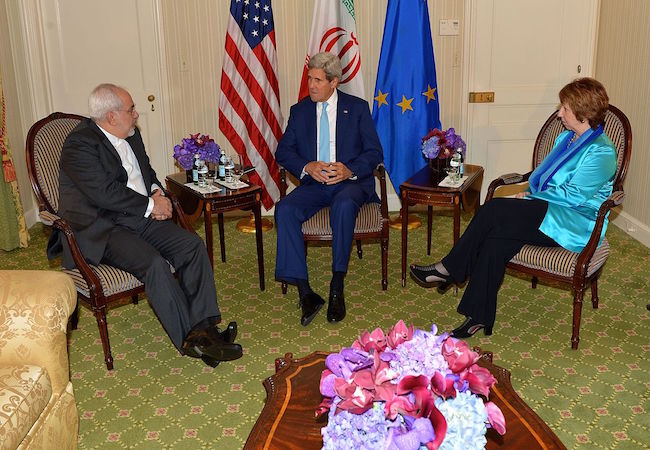
By Nasurullah Brohi
The P5+1 group, mainly consisting great powers and five permanent members of the United Nations Security Council plus Germany is eagerly pursuing any mutually agreed framework over Iran’s controversial nuclear program. The P5+1 group is led by the United States.
The issue of any possible deal has been under severe critics from the U.S Congress to Israeli leadership and the Saudi royal family; all trying to bring immense political pressure to turn against any deal. However, at its own behest, the Obama Administration is trying to bring any political solution to prolong and a controversial nuclear program of Iran. The goal of President Obama’s Administration is widely objective oriented to ensure prevention of Iran from developing nuclear weapons faster than the outside world could stop it.
Iran has been under severe sanctions allegedly for its attempts to transfer its nuclear energy program to the ambitions to gain nuclear weapons. However, any successful conclusion would bring an opportunity to lift such sanctions from Iran. As the deadline of reaching any possible solution to Iran’s nuclear issue is drawing closer, the speculations are also growing about the successful Iran –U.S nuclear deal. This deal would definitely bring tremendous economic opportunities for Iran and opportunities of a prosperous region as well.
More than any other states, it is in the greater interest of Iran itself to come out with a deal with the international community and bring up maximum chances of boosting its stalled economy that has been under the shadow international sanctions for more than three decades. Whether the political strategy or real compulsion, Iran’s obligation for minimal diplomatic participation is also a result of the fundamental idea to remain in isolationism and face the prolonged sanctions alone.
These sanctions against Iran were imposed through Executive Orders and legislation by the United States and therefore resolutions were also passed by the U.N Security Council. These sanctions vary in their criteria. These sanctions were mainly aimed at developing immense political and economic pressures in order to restrict Iran’s ambitions for acquiring and pursuing its nuclear program. These sanctions were not only intended to restrict Iran for its nuclear program, but according to the United States objectives these were also focused with the endeavour to limiting Iran’s capabilities to influence the region and even discontinue its support to any group like Hizbullah and Hamas.
If the deal comes with any successful outcome, the Country can get huge political and economic strength more than any other state in the region because it is immensely rich in oil and natural gas resources but unluckily due to the economic sanctions and deliberate isolation there is hardly any foreign investment in Iran. Consequently, the unemployment is widespread, especially among the youth. The situation is even worse for many of the country’s banks, which are in uncertain positions. The manipulation is also prevalent among the political groups that profit by circumventing the international sanctions.
In the modern era of inter-dependence no state can live in a policy of isolation because, such isolation can only thwart the state from benefiting and getting economic prosperity through its trade and other dealings with the other countries in the world. The aloofness is even against the rules of nature and could only add to the economic, political and cultural sufferings of the nations. Any state could strongly represent its viewpoint and prompt its dealings in a better way by having a participatory role in the community of the nations rather than closing all of its doors and sitting in the isolation.




